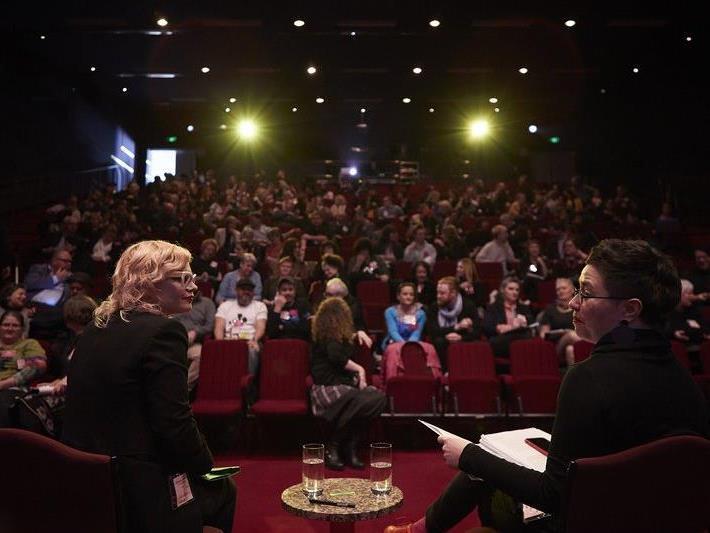Image: Day 2 NAVA conference Future/Forward, Photo credit: Zan Wimberley.
The Monthly Briefing revisits a selection of important news, features and announcements published on ArtsHub over the past four weeks. Sign up here to receive direct to your inbox.
Politics, policy and passion set the tone for August – a month that increasingly became impossible to just slip by; to ignore.
The arts has had to manage incredible disruption and disrespect over the past five years, with rolling funding cuts and a perpetual demoting of its value within political ranks. Sadly that thinking has not improved.
It would appear that the sector continues to be a pawn for political folly – both short sighted and cavalier in its lack of consultation.
Earlier this month over 240 visual artists and peak visual arts organisations gathered in Canberra (14-15 August) for National Association for Visual Artists (NAVA) conference Future/Forward. The topic on the table was how can we – as a sector – advocate for greater visibility, better policy and a more stringent Code of Practice?
I would have to agree with the point made by NAVA CEO Esther Anatolitis: ‘Study after study shows us that artists’ working conditions are becoming more and more precarious; average incomes are falling; industry standard fees and payments are too often not observed …We urgently need standards that are applied and enforced ethically.’
It echoed the Federal Government’s survey into the Major Performing Arts (MPA) Framework, which was in full swing during August. The sector is doing its part in advocating proactive change, but are the politicians taking it on board?
The timing was uncanny for both, given that within a week of addressing artists at the NAVA conference, Minister for the Arts and Minister for Communications, Senator Mitch Fifield resigned (23 August), a casualty of the #libspill.
He was later reappointed to the position as part of Prime Minister Scott Morrison’s new cabinet – doubtless leaving some in the sector disappointed at the lack of a new broom in the portfolio.The news of Fifield’s resignation came a day after Peter Louca, Executive Director of Arts South Australia, was dismissed by the Marshall Liberal Government, and just two weeks before the SA state budget is to be handed down on 4 September.
Sector sources have concerns that Louca’s dismissal may be the next step in downgrading Arts South Australia’s influence and agency. In a public letter, the Arts Industry Council of South Australia (AICSA) expressed anxiety over the lack of detail regarding future intent – the Premier declining to meet with the peak org before the budget. As if afterwards would be more effective?
AICSA will hold a State Budget briefing forum on Thursday 13 September at 5:30pm at ACE Open in Adelaide.
The timing of Louca’s dismissal again lacked total connection or consultation with the sector. South Australia is in the midst of a month-long festival celebrating its living artists (SALA). I am not a pessimist by nature, however, the constant destabilising of the arts results in damage that lasts well beyond a political cycle.
But all was not bleak this August. While politics continued to rupture the sector nationally, a show of self-determination and resilience in the visual arts also set the tone this month.
Melbourne Art Fair returned with a reinvented format in the Southbank Arts Precinct (2-4 August), pushed the boutique line. Dealers gave the new format the thumbs up, and with 15,076 visitors reported to have attended the Fair over four days, and $9.1 million in art sales, it is clear to all that this “tester” is a good model to grow.
And in the Territory, the 2018 Darwin Festival (9-26 August) has reported the most successful attendance in its 39-year history – achieving its highest gross box office with 55% of ticketed shows sold out and over 44,000 tickets told.
Both events are a message to politicians that the arts count! They drive tourism, they drive local economies and they offer pathways for understanding. Study after study have proven this to be the case, but this month’s machinations by our politicians show that, save for the odd artsy photo-op, they are clearly not listening to the sector.





